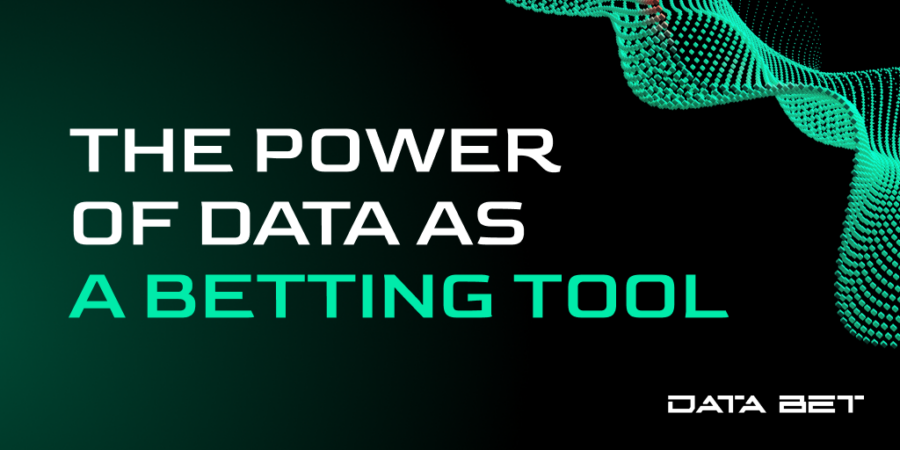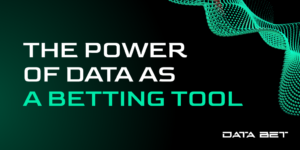Mathematical modelling: DATA.BET unveils the power of data as a betting tool

Oleksii Kulish, lead data scientist at DATA.BET, explores how the application of mathematical models plays a crucial role in forecasting outcomes and calculating probabilities in sporting events.
Opinion.- The application of mathematical modelling has emerged as a game-changer, particularly in the rapidly evolving realm of esports. This is mainly because machine learning models play a crucial role by leveraging vast datasets to identify complex patterns and non-linear relationships that traditional methods might overlook, thereby enhancing the accuracy and reliability of predictions.
In this article, Oleksii Kulish, lead data scientist at DATA.BET, explores the value and understanding of where and which mathematical frameworks, advanced analytics, and predictive modelling techniques are best used, and how they are transforming the ways we forecast outcomes and calculate odds for esports events.
Advanced statistical models
Models like linear or logistic regression, different classical distributions, and Bayesian networks are at the core of mathematical modelling in betting.
In esports, they are used to:
- Estimate the probabilities of different outcomes, helping to set accurate betting odds.
- Identify key factors that influence match results, providing insights for bettors.
- Continuously update predictions based on new data, especially during live betting scenarios.
Basically, these models estimate probabilities or simple pre-match scenarios, relying on variables like historical matchups and team strength. They are straightforward regarding parameter selection, interpretation, and maintenance, even through game updates.
For instance, predicting the first kill in MOBA games involves deciphering the direct link to team strength, a discovery derived from meticulous analysis of historical data. This approach formed the foundation of pre-match models five years ago. Initially, there was a theory about a direct link between team strength and outcomes. Testing this hypothesis on historical data revealed a clear pattern, which was then used to create a more reliable predictive model.
However, solving simple tasks raised further questions, such as how patterns might shift over time, whether other factors could affect probabilities, and how to apply these models during live games while keeping the market open as long as possible.
By addressing these questions, models were expanded, incorporating new pre-match features that enable approximations not only in two dimensions but also in an n-dimensional space. Modern pre-match models now have auto-updating parameters and monitor time trends, allowing much earlier market entry if highly accurate odds are available.
Automated responses to changes ensure consistently excellent results, eliminating the need for continuous manual adjustments and model fitting. This saves both time and resources, maintaining time for additional advancements.
Machine learning and predictive analytics
Machine learning techniques, including neural networks and decision trees, have become indispensable tools in parsing vast datasets generated by esports events. These models excel at identifying non-linear relationships and patterns, offering real-time insights during live games that traditional statistical analyses fail to capture. The capability ensures that betting lines remain open for a longer period, providing bettors with continuously updated and precise odds throughout the game.
For example, in Dota 2, a neural network might identify a unique mix of hero selections, gold accumulation, item purchases, and tower destructions to predict precise match outcomes. Given their adeptness at handling a vast array of parameters and identifying dependencies within them, these models are utilized to predict probabilities during the live stages of a game, where the situation dynamically changes.
Furthermore, advanced neural network models, such as Long Short-Term Memory (LSTM) networks, go beyond analyzing static snapshots of game states. They incorporate time series data, capturing the temporal dynamics of games to understand how situations evolve over time, providing a richer analysis of game dynamics.
While these predictive models may act as a “black box” to external observers, recent innovations offer glimpses into their inner workings, enhancing transparency and fine-tuning for greater accuracy. By adapting neural network architecture to the unique challenges of esports, predictive models deliver actionable insights, driving better decision-making and outcomes in betting markets.
Neural networks ensure continuously updated and precise odds throughout the game, enhancing the overall betting experience. This is crucial since, statistically, 80 per cent of turnover and nearly 95 per cent of players engage in live betting, which means that players are not just interested in placing bets; they also want to cheer for their favourite team in real-time.
Game theory and strategic analysis
The application of game theory to esports betting models provides valuable insights by analyzing how teams interact and make strategic decisions, such as hero selection in Dota 2 or map choices in CS2. It also anticipates the strategies of opposing teams based on historical behaviour and in-game situations.
By modelling game interactions as strategic moves and countermoves, analysts predict outcomes based on likely strategies competing teams adopt. Strategic analysis involves understanding and evaluating the various factors influencing game outcomes. Dynamic simulations and reinforcement learning further refine these predictions, offering nuanced views of potential match outcomes.
How these models are helpful for esports betting:
- Enhanced predictive power
Boost the understanding of the strategic interactions and likely decisions of teams and players.
- Informed betting decisions
Help bettors to consider the strategic aspects of the game.
- Competitive edge
Understanding and applying game theory involves deeper insights.
Dynamic simulations & reinforcement learning
Utilizing Monte Carlo simulations or agent-based modelling allows for exploring a wide range of possible event outcomes by simulating thousands of game scenarios. These simulations consider not just the statistical likelihood of various events but also the strategies and counter-strategies that teams might employ.
Reinforcement learning algorithms are trained on historical data and real-time information to identify patterns and develop betting strategies. By modelling players’ decision-making processes and the probabilistic nature of in-game events, simulations can offer a nuanced view of potential match outcomes at any time in the game.
However, such models have yet to be widely adopted for predictive analytics. They are primarily used for feature engineering and insight discovery, illustrating the gap between computational optimization and real-world gaming strategies.
Benefits of using such models for esports betting:
- Improving accuracy by incorporating dynamic elements and the ability to learn and adapt.
- Identifying hidden factors that human analysts might miss.
Summary: the modelling approach for advanced data science
A specific model in predictive analytics and machine learning within the esports domain is selected by:
- Available data;
- Desired level of accuracy;
- Resources allocated for the ongoing support of such models.
The development of models begins with the simplest ones, and the complexity of approaches is scaled up as needed. This enables the Data Science team to glean more insights from the dataset and prepare the data and hypotheses for more complex models with maximum efficacy.
As models become complex, each step builds upon the last, ensuring that every layer of analysis contributes to a deeper, more nuanced understanding of game dynamics and player behaviour. This gradual build-up not only optimizes resource usage but also ensures that each model iteration is grounded in solid, empirically tested hypotheses, leading to more robust predictive analytics in the fast-evolving esports arena.
By developing advanced approaches in machine learning, mathematical models will provide the best odds for understanding and predicting game dynamics. This improvement in predictive analytics showcases the depth of insight that Data Science can bring to the fast-paced and complex world of esports, transforming data into a powerful tool for strategy and decision-making.











